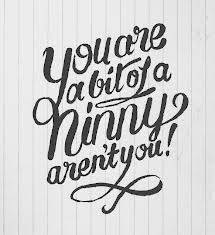OrdinaryTimes 1.27-InnerNinny

I’m dealing with subtlety—a substance almost extinguished in the bold branding balderdash of modern marketing. Nobody organizes mass marches for subtlety. No stirring speeches promote it. No cheerleaders pump up the crowd. Almost nobody notices its presence or its absence except the author and The Muse, and they notice too well.
David suggested that my InnerNinny might be a feature of subtlety—not even closely qualifying as any kind of problem—and in the moment he reframes my shame, my cloudy mood brightens. My problem had not been my incipient ninny-ness, but the shame I’d felt when my InnerNinny took over. “If you’re gonna engage in such subtle work, your InnerNinny might be your best friend,” David proposed. Huh, I’d not thought of it that way before.
Now I can think of it like that. This shift counts as the greatest gift any friend can give, the subtle shifting of a seemingly inescapable boundary. The loving acceptance of an apparent curse. The warm acknowledgement of who another seems to be, even when he seems to be an awful lot like me: a ninny, sometimes. The painfully extraordinary reduced to mere OrdinaryTimes.
I have my moments of extreme courage, and others of even more extreme foolhardiness, but I sometimes work the high wire, and that’s no place for slinging hash. I should feel shy and disoriented up there, a stranger to the rare altitude and dangerous possibilities. David reminded me of the cost of releasing work without having aligned the subtleties. Once published, it would serve as an embarrassing reminder of the time I could not wait for the bread to finish baking before pulling it from the oven to share with my family and friends. What could have been a subtle masterpiece became instead an artless artifact. Nobody needs artless artifacts, and my InnerNinny will be fussing a little while longer before removing this loaf from its oven, uncertain if it will ever finish cooking.
Yes, I’m starving, or seem to be. Sometimes, my InnerNinny is the only thing standing between me and misery.
©2013 by David A. Schmaltz - all rights reserved


